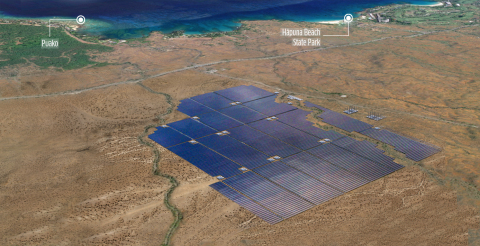
ENGIE EPS incurred increases in operating expenses and extraordinary costs due to COVID-19 which “more than offset” an increase in revenues that ENGIE’s energy storage subsidiary earned in the first half of this year.
European utility player ENGIE acquired a majority stake and rebranded the company, which had been spun out of a Turin University and known as Electro Power Systems, in 2018. It is engaged in delivering energy storage solutions including grid-connected large-scale project development and microgrids, as well as industrial solutions and e-mobility solutions.
Enjoy 12 months of exclusive analysis
- Regular insight and analysis of the industry’s biggest developments
- In-depth interviews with the industry’s leading figures
- Annual digital subscription to the PV Tech Power journal
- Discounts on Solar Media’s portfolio of events, in-person and virtual
ENGIE EPS just announced its first half of the year’s financial results up to the end of June 2020. Having already said following the first quarter of the year that the outbreak of the coronavirus was having a serious impact on the company’s work as well as its financial position, warning that it was unable to commit to providing full-year financial guidance, the company said its net financial position by 30 June 2020 had decreased to €-17.8 million (US$-20.76 million), down from €-8.1 million on 31 December 2019.
Although revenues and other income added up to €5 million, up 89% compared to the first half of 2019, owing strongly to growth in what ENGIE EPS terms ‘Giga Storage’ (utility-scale energy storage and solar-plus-storage projects) as well as industrial solutions including microgrids and commercial energy storage, a decrease in gross margins for Giga Storage activities, increases in operating expenses and extraordinary costs due to COVID-19 were greater than the sum of revenue increases. This was in part due to delayed construction schedules for projects including Sol Des Insurgentes, a 23MW solar farm in Mexico with 5MW of battery storage, now expected to be completed next year.
However, ENGIE EPS appears to have a decent amount of work ahead to look forward to: it has won a few hundred megawatt-hours of ‘Giga Storage’ contracts worth more than US$130 million for projects in territories including Hawaii, Guam and New England.
The Guam projects are vast solar-plus-storage sites secured under 20-year power purchase agreements (PPAs) with the local Power Authority of Guam and in Hawaii ENGIE EPS was among successful bidders in the islands’ biggest renewables (and storage) tender to date, winning a 240MWh project under a 25-year PPA with Hawaii Electric that is currently before regulators to win approval.
Including a 50MWh project contract awarded in New England, ENGIE EPS claimed the US projects add up to around 600MWh in total.The company’s overall project pipeline is up 130% on this time last year, worth around €806 million. More than 80% of that pipeline is Giga Storage product-related, representing a massive growth in that segment from the company’s backlog to date, where it represented around just 1% of the work ENGIE EPS had done.
On a smaller scale, mass production of EasyWallbox, a home electric vehicle (EV) charger has begun, as has the operation of a vehicle-to-grid (V2G) project in Italy with grid operator TERNA and auto company Fiat Chrysler that EPS is hoping will pave the way for more projects of its kind. ENGIE EPS’ first microgrid project in California is also close to completion and the company sees itself among those able to help the state build out resiliency options in response to the many challenges of electricity supply and reliability it has faced recently.
While ENGIE is undertaking a strategic review of ENGIE EPS and its options may include divesting its stake in the company, the majority owner remains committed to the three major US energy storage projects that the pair are working on together. Both companies will continue “jointly developing projects which are deemed mutually beneficial,” ENGIE EPS said in a release. In the event that the parent company decides to sell up and move on, ENGIE would remain committed to offering continuous financial support “until a potential transaction is closed”.






